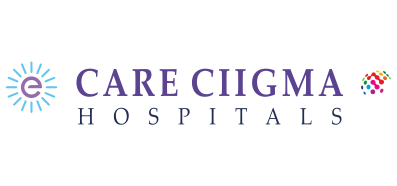Kidney Cancer
Cancer that forms in tissues of the kidneys.

Kidney cancer includes renal cell carcinoma (cancer that forms in the lining of very small tubes in the kidney that filter the blood and remove waste products) and renal pelvis carcinoma (cancer that forms in the center of the kidney where urine collects). It also includes Wilms tumor, which is a type of kidney cancer that usually develops in children under the age of 5.
A sign is something that can be observed and recognized by a doctor or healthcare professional (for example, a rash). A symptom is something that only the person experiencing it can feel and know (for example, pain or tiredness).
Kidney cancer may not cause any signs or symptoms in its early stages because the kidneys have few nerves, so tumours can grow without causing any pain or discomfort. The location of the kidneys deep inside the body means that tumours have space to grow very large before they are found. Symptoms appear once the tumour grows into surrounding tissues and organs.
Most people with kidney cancer have advanced disease at the time of diagnosis. Up to one-third of people without any signs or symptoms will have their kidney cancer found during an ultrasound or x-ray for reasons other than kidney cancer.
The signs and symptoms of kidney cancer can also be caused by other health conditions. It is important to have any unusual symptoms checked by a doctor.
Signs and Symptoms of Kidney Cancer are:
- Blood in the urine (hematuria)
- Pain in the back and side of the abdomen (flank)
- Lump that can be felt in the abdomen
- Paraneoplastic syndrome – abnormal levels of hormones released by the kidney that causes:
- High blood pressure (hypertension)
- Fatigue, paleness and malaise caused by a low red blood cell count (anemia)
- High blood calcium (hypercalcemia)
- Fever
- Night sweats
- Weight loss
- Loss of appetite
- Amyloidosis – abnormal protein buildup in the body’s organs and tissues
- Increased numbers of red blood cells
- Swelling (edema) of the legs and ankles
Rare Signs and Symptoms of Kidney Cancer are:
- In older men – a large, visible, swollen vein (varicocele) in the scrotum
- This sign usually appears quite suddenly or quickly
- It is caused by a large kidney tumour that has grown into the renal vein and changed the blood flow through the spermatic vein
- Stauffer’s syndrome – abnormal liver function tests when there are no tumours or disease in the liver
Cancer treatment is given by cancer specialists (oncologists). Some specialize in surgery, some in radiation therapy and others in chemotherapy (drugs). These doctors work with the person with cancer to decide on a treatment plan
Treatment plans are designed to meet the unique needs of each person with cancer. Treatment decisions for kidney cancer are based on:
- The stage of kidney cancer
- Whether the person has 1 or 2 working kidneys
- Whether the kidney cancer is in 1 or both kidneys
- Type of kidney cancer
- Overall health of the person with kidney cancer
- Surgery
- Surgery is the primary treatment for kidney cancer
- A radical nephrectomy is used to try to completely remove an early-stage kidney tumour
- A partial nephrectomy is used in certain cases to conserve normal kidney tissue and function
- Palliative surgery may be used to reduce pain or ease symptoms of advanced kidney cancer
- Targeted therapy
- Targeted therapy is used for metastatic or recurrent kidney cancer, or kidney cancer that is too advanced to be removed by surgery
- The type of targeted therapy will depend on the type of kidney cancer, the level of risk, and any previous targeted therapies used
- Biological therapy
- Biological therapy is now rarely used in Canada, as targeted therapies have been shown to be more effective treatments
- It may be used in specialized treatment centres with people who have kidney cancer that is no longer responding to targeted therapy
- Arterial embolization
- Arterial embolization is used to reduce the pain of advanced kidney cancer for people who cannot have surgery
- It may be used before surgery to reduce bleeding when a large kidney tumour is removed
- Radiation therapy
- External beam radiation therapy may be used to relieve pain or to control the symptoms of advanced kidney cancer (palliative radiation therapy)
- Active surveillance
- Active surveillance means following the progression of a disease that is not showing any signs or symptoms with a series of tests over regular time intervals
- It is not offered for young and healthy people with kidney cancer
- It may be offered for people with small kidney tumours who are elderly or ill and have other health concerns
- Imaging tests, such as computed tomography (CT) scan or ultrasound, are used on a regular basis to watch the progression of the tumour
- Currently, active surveillance is rarely used in Canada
- Follow-up after treatment is finished
- It is important to have regular follow-up visits, especially in the first 3 years after treatment

